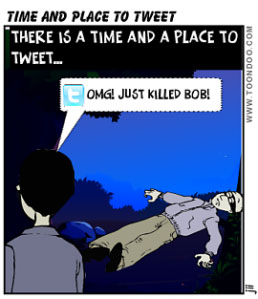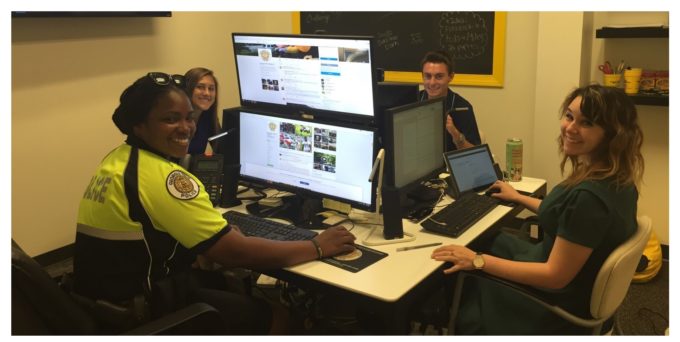Social Media Handbook for Police: Part 11
Welcome to the the next instalment in my series of social media tips. These are aimed primarily at a police audience, but hopefully applicable to a wider group of people too, especially those in the public sector. This series of posts will aim to identify some good practice and useful hints and tips for police officers and staff to consider when using social media.
Part 11: More Operational Uses
Part 10 of the handbook tackled using social media in public order. As I said there, one of the more common themes around police use of social media is the question of how it can be used operationally. There is often a lot of scepticism – it is fine for ‘engagement’ but not for so called ‘real policing’. A number of forward thinking forces and individuals have however made a great deal of progress using social media in the more operational areas of policing.
Crime Investigation
Social media has been used in investigation of both serious and less serious crimes. Many people will be aware of the Joanna Yates case involving Avon and Somerset police. There is still a facebook page up in memory of Joanna Yates, and the criminal justice system needs to be aware of the potential for public discussion of cases and the impact it may have on investigation, and ultimately on the ability to hold a fair trial. As an aside the Facebook page also contains some unpleasant comments, including several from people professing to be the killer.
Recently a DCI from Norfolk police was quoted as saying that “social media sites can be a doubl- edged sword. In major investigations they can find they have to deal with a large amount of unreliable information, posted online. Social media sites increase the volume of information police have to sift through, sometimes making it harder to identify what really happened.” This was in relation to a murder case, and centred around difficulties identifying people with real first hand knowledge as opposed to people who were just re-tweeting rumours and second hand information.
This can make social media a challenging space for investigation; the sense of anonymity and ease of spreading stories and rumours that social media can generate can swiftly result in a torrent of information that makes managing an investigation difficult. However it is always possible that there is real intelligence in all the other posts, and possibly even a genuine confession.
I recently advised on whether to use social media to make a witness appeal for a high profile case – my advice was to be very clear about what outcomes were expected, and be careful about allowing people to post up on a Facebook page or similar. I also suggested that the demographic of likely witnesses should be considered, and adequate resources put in place to sift through the replies as they come in. In many ways the process is similar to that which an SIO goes through when considering any press release or media briefing.
My final piece of advice was to use a pre-existing account where possible, that people already had trust and confidence in – creating a new account will usually only work for the most high profile cases. If you want significant numbers of people to see and act on a social media request for witnesses, then using an account that already has a reasonable number of followers is the way forward. Of course, this means that you need to start now, and not wait until the major incident occurs…
This post was previously published on Partrdigej’s blog.
Related posts:
Using Twitter Hashtags for Emergency Management by Scott Mills
Seizing the Virtual Scene by Lauri Stevens
West Midlands (UK) Police: Twitter on the Frontline by Mark Payne
Previous posts from the Social Media Handbook Series:
Part 1: What Social Media networks should I use?
Part 2: How do I get followers / friends ???
Part 3: Policies / Strategies / Guidance??
Part 4: Ten things to have on your page to drive up interest??
Part 5: What to do when things go wrong
Part 7: Basic Guides – Twitter and Flick’r
Part 8: Connect it all together
Justin Partridge is a senior manager for Lincolnshire Police in England. He also works on Local Policing and Partnerships for the Association of Chief Police Officers (ACPO).
Justin Partridge has worked in the public sector since leaving university, and for the police since 2003. After being one of only three non-sworn staff selected for the prestigious Police Strategic Command Course (for those who aspire to the most senior posts in UK policing), he started working on the national Local Policing and Partnerships area with chief officers from across the UK, and with partners from the Home Office, NPIA, APA and elsewhere.
Justin is passionate about making a difference to people, and see social media and new technologies having a major role in this – especially in policing and the wider public sector. He blogs on a variety of issues, predominantly around police and technology, and can be found on Twitter talking about much the same.





Pingback: Social Media Handbook for Police: Part 12
Pingback: Social Media Handbook for Police: Part 12 | ConnectedCOPS.net